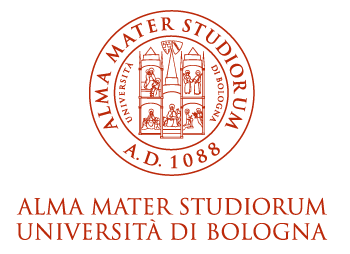Applied Critical Archaeology and Heritage brings the study of the past and heritage to the future. With completely innovative options, designed specifically for this degree and dealing with aspects as diverse as critical archaeology, landscape, digital tools, and heritage studies, ACRA will provide students with all the skills needed to successfully forge their path within the professional sector and the international academic one alike.
The aim of ACRA is to provide an academically sound, critical and practice-oriented knowledge of archaeology and cultural heritage, with a global geographic focus.
The students that will successfully accomplish the program will be able to:
Depending on the modules undertaken students of this program will be able to effectively forge their own career. While scientific and area-specific options will allow them to continue a research path, critical/heritage-oriented options can result in alternative placements within agencies and institutions working in the broad and burgeoning heritage sector at a private, public, national and supra-national level. The presence of a considerable amount of practice lead activities (on the field and in labs) will equally enable students to pursue more traditional pathways as well as to be well trained towards a modern development-led archaeology.
The enrolment fees, net of the first instalment, and information on benefits and exemptions are available on the University website (here).
According with their (family) income, first year students maybe totally or partially exempted from paying tuition fees.
For more information about how to apply, please see here
The curriculum Archeologia: ricerca e interpretazioni storiche (Archaeology: Research and Historical Interpretations) aims to train archaeologists skilled both in the new methodologies and techniques of archaeology and in the traditional historical, philological, and art-historical disciplines.
The main entry degrees are three-year or four-year Bachelor’s degrees in Cultural Heritage, Humanities, or History. However, eligibility may also be assessed on the basis of other academic backgrounds.
Over the two years, graduates will acquire:
theoretical and practical skills in archaeological disciplines, related to historical-artistic content, material culture, and settlement patterns, supported by knowledge of history and ancient written sources; the chronological scope ranges from prehistory to the early Middle Ages, while the geographical focus is mainly on Europe, North Africa, and the Near East;
theoretical and applied knowledge of excavation methodologies and techniques, topographic and architectural surveying (including GIS-based), remote sensing, archaeological fieldwork, material classification, restoration, museology, and digital applications, including virtual archaeology.
Graduates will therefore be able to collaborate within multidisciplinary teams, especially with specialists who regularly participate in archaeological activities: physicists, chemists, IT experts, geologists, restorers, architects. They will also be capable of communicating effectively with diverse audiences and stakeholders, from public administrators to visitors at all levels.
The study plan builds on the experience gained during the first three years of the programme (as a Specialist Degree), which saw a steady and significant increase in enrolments and a broadening of student backgrounds from across Italy and abroad.
The curriculum now includes twelve exams, comprising the final dissertation and laboratory activities and/or internships at external institutions (especially Superintendencies and museums, with which agreements and training partnerships have been established). It is structured to ensure:
a balance between theoretical study and applied activities;
the possibility of pursuing specific orientations (prehistory, classical archaeology, late antique and medieval archaeology, Near Eastern archaeology), without narrow specialization, which might otherwise limit cultural perspectives and career opportunities.
Graduates of this Master’s Degree will be able to work, with positions of high responsibility, in fields such as:
institutions responsible for the preservation and promotion of archaeological heritage, such as Superintendencies and museums;
organizations and research units for the study, conservation, and management of archaeological, artistic, documentary, and monumental heritage, in both public and private institutions (municipalities, provinces, regions, foundations, etc.);
professional groups able to collaborate in all activities—from excavation to public dissemination—with institutions responsible for protecting archaeological heritage, particularly in the field of preventive archaeology;
publishing, journalism, and other media specializing in archaeology.
